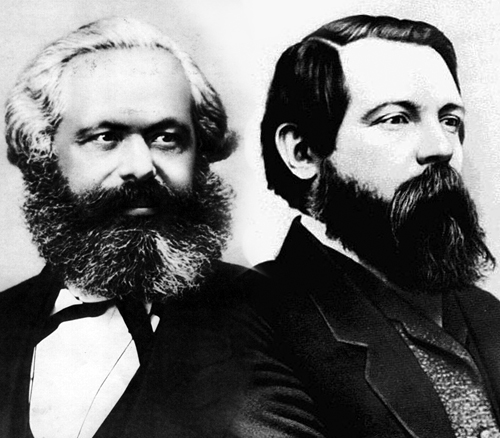I'm talking about conventional perspectives on the lumpenproletariat; early marxists clearly ran in different circles than I do.
A contemporary definition from the Communist Party of Texas:
Generally unemployable people who make no positive contribution to an economy. Sometimes described as the bottom layer of a capitalist society. May include criminal and mentally unstable people. Some activists consider them "most radical" because they are "most exploited," but they are un-organizable and more likely to act as paid agents than to have any progressive role in class struggle.
I can just feel the classism dripping out.
The wikipedia article about the phrase basically illustrates the idea of the lumpenproletariat as having been used as a punching bag by Marx, to create a foil to the proletariat in order to glorify the latter's revolutionary potential. From The Communist Manifesto:
The lumpenproletariat is passive decaying matter of the lowest layers of the old society, is here and there thrust into the [progressive] movement by a proletarian revolution; [however,] in accordance with its whole way of life, it is more likely to sell out to reactionary intrigues.
Anyway, I find this whole line of thinking precisely as deplorable as Marx, and Engels, and those who followed found the lumpenproletariat. Apparently Mao saw more revolutionary potential in the lumpenproletariat, believing they were at least educable.
It seems like the Black Panther Party looked toward the lumpenproletariat with some humanity, and they saw revolutionary potential in "the brother who's pimping, the brother who's hustling, the unemployed, the downtrodden, the brother who's robbing banks, who's not politically conscious," as Bobby Seale, in-part, defined the lumpenproletariat.
This feels much more honest and humane than the classical definitions, which I guess a lot of the major communist orgs in the u.s. still run with.
Finally, I'll just copy and paste the very short 'criticism' section from the wiki article as some food for thought:
Ernesto Laclau argued that Marx's dismissal of the lumpenproletariat showed the limitations of his theory of economic determinism and argued that the group and "its possible integration into the politics of populism as an 'absolute outside' that threatens the coherence of ideological identifications." Mark Cowling argues that the "concept is being used for its political impact rather than because it provides good explanations" and that its political impact is "pernicious" and an "obstacle to clear analysis." Laura Pulido argues that there is a diversity in the lumpen population, especially in terms of consciousness.
Anyway, just one of those 'holy shit' moments. Usually I vibe hard with classical marxism, but they can't all be hits. Wondering other peoples' takes.
But don't go telling me that my lumpen comrades are economically predestined to not be revolutionary socialists, because that analysis would run in direct contradiction to material realities ;)


Marx
This still is true.
Mao
IF. Meaning without proper guidance they are destructive
So its not they are despised, which is your incorrect interpretation, but that without guidance they will become reactionary or anarchists if they do not internalize socialist constructive qualities, which many do not have because of the extreme alienation they have been subjected to, not because of their own fault but the system they have been forced to live in. This is not to say they cannot be reformed but many simply won't, and shouldn't be within the party, but outside it. China has 90 million members in its party, out of a population of how many? It was never intended for every single person to be within the party, some just don't have what it takes, and that is fine.
A party requires discipline and hierarchy, as does an army. People who have internalized rejecting both will not make good cadres or soldiers. This doesnt mean they should be set aside, but be given roles other than soldier or cadre, like scientist, logistics, farmer, merchant, construction, etc there are many other roles that do not require the same strict discipline but are also necessary for society at large, or be strictly disciplined if they wish to be in the party or army, which was what the Black Panthers did.
But a party of limited resources, as it often is the case, must make choices between what kind of people they are trying to recruit and train and the chance these might turn against it and become paid agents of the Empire which has infinite resources to corrupt, because they have internalized individualism to an extreme during their previous lumpen-phase, and while the definition of who is lumpen may have changed, the basic theory underlining it hasn't.
deleted by creator